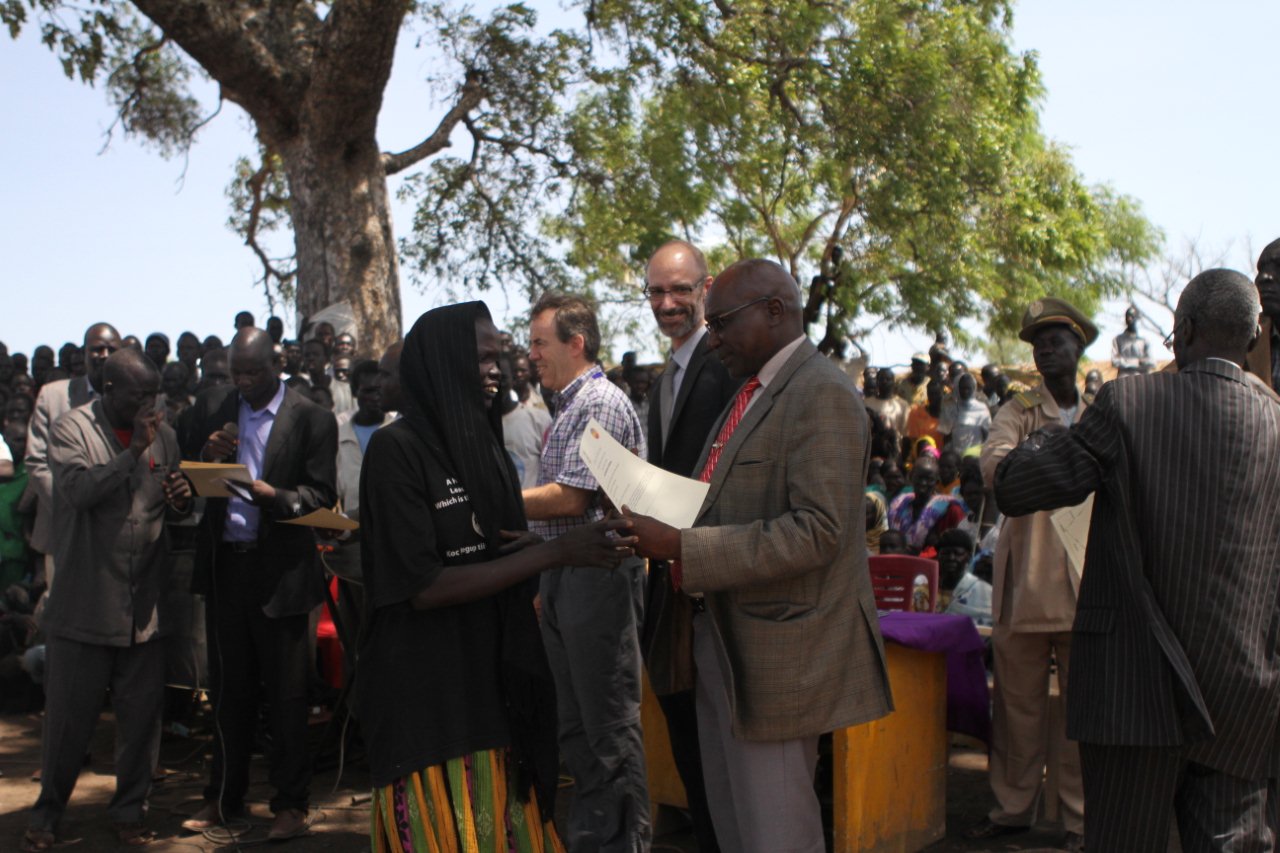N. Bahr el Ghazal allocates land to S. Sudanese returnees
By Julius N. Uma
May 25, 2012 (JUBA) – A total of 900 South Sudanese returnees could hardly hide their joy after the Governor of Northern Bahr el Ghazal on Thursday announced the transfer of about 500m² of land meant to resettle about 1,250 households in Nyalat, located about 6km west of Aweil, the state capital.

The initiative, officially launched by Paul Malong Awan, is part of the government’s effort, with support from United Nations Development Programme (UNDP) and the US Agency for International Development (USAID) to resettle thousands of returnees who recently returned from neighbouring Sudan.
“We undertook this initiative with the support of our development partners to support our citizens who recently returned into the country to empower them so that they can be able to live comfortable lives,” Awan told Sudan Tribune by phone from Aweil.
The land allocation, he emphasised, is expected to go on as the returnees’ influx into the state continues to increase, lauding the tremendous work done by the South Sudan Relief and Rehabilitation Commission (SSRRC); the state body task with registering these returnees on arrival.
At least 15,000 South Sudanese were expected to leave Khartoum at the start of this year, with repatriation support from the International Organization for Migration (IOM), working in collaboration with both the Government of Sudan and South Sudan.
On arrival, Sudan Tribune had learned, the returnees have to undergo intensive registration, courtesy of SSRRC, before they are taken to a transit camp for a period of about three months and provided with non-food items.
In a separate interview, Ronald Ruay Deng, Northern Bahr el Ghazal’s acting minister for physical infrastructure said the state surveyed and demarcated over 9,000 plots of land in Nyalat, which have all been earmarked for resettlement purposes.
“We rely on land information system data base supported by USAID which has details on all these available plots, while the allocation criteria is done through a lottery process,” Deng said.
The size of land allocated, he said, depends on the size of each household, adding that the process is transparent with all the members expected to benefit from the existing public utilities and community facilities provided by the state government.
“The importance of this process is that returnees are assured of secure land tenure since they are provided with all the necessary documents for prove of ownership and security,” the acting minister emphasised.
According to Deng, the areas allocated for resettlement of these returnees have also been earmarked for establishment of schools, markets and hospitals to benefit them.
In a bid to enhance the resettlement programme, however, UNDP, USAID and other development partners reportedly supported the government in designing a land management plan, acquiring basic training and equipment to support urban planning, and developing a land registry database to manage the land titling process.
(ST)

